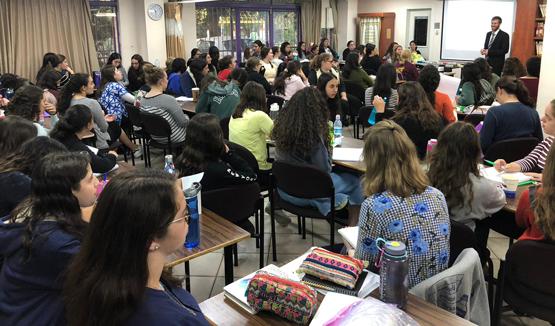
Adar II 5779, Issue no. 4
Toraland TV
Mitzvah in a Minute - Orlah
Q&A
I'm growing vegetables in my garden. I heard that if I bring them into the house through the window I won't need to separate terumot and ma'aserot from them. Is that true?
Answer:
Rabbi Moshe Bloom
The Gemara (Pesachim 9a) states that produce brought into the house in an unconventional manner (i.e. not through the door), rather through the window and such, is exempt from the obligation of separating terumot and ma'aserot. Rambam (Hilchot Ma'aser 4:1) and Shulchan Aruch (YD 331:83) rules accordingly:
"Untithed produce does not assume the biblical obligation of terumot and ma'aserot until it is brought into the house, as it is written: "I have removed the consecrated from the house" [Devarim 26:13]. That is, if one brings it through the gate, as it is written: "and they shall eat in your gates" [Devarim 26:12]. However, if one brought his produce through the roof or enclosed courtyard, it is exempt from terumot and ma'aserot."
The poskim, however, are in disagreement regarding the implications of this exemption. While some Rishonim state that this is a blanket exemption, many maintain that only achilat arai, snacking, is permitted, but achilat keva, a fixed meal, is prohibited. Examples of achilat keva include: cooking, making a salad, peeling, the produce in any form on Shabbat, and more. In such a case, even if the produce is brought into the house in an unconventional fashion, terumot and ma'aserot are to be separated without a blessing.
If your yard is a chatzer hamishtameret (a "preserved courtyard", an area where strangers are not supposed to enter), if one picks two or more fruits or vegetables at a time they will immediately be subject to terumot and ma'aserot while in the yard.
In practice: if you pick one fruit or vegetable and pass it through the window into your house, and then eat it as a snack, it would be exempt from terumot and ma'aserot. However, if it is used for achilat keva, you would need to separate terumot and ma'aserot first, without a blessing.
Note that one who merits separating terumot and ma'aserot performs 20 (!) mitzvot – 6 mitzvot ase and 14 mitzvot lo ta'ase. The process of separation itself is fairly short and simple, for those who learn how to do it. Furthermore, our Beit HaOtzar provides a solution to help people take terumot and ma'aserot in the most mehudar and convenient fashion.
For this reason, we suggest not finding loopholes and tricks, such as bringing produce in through the window—even according to those who hold that such produce is completely exempt from terumot and ma'aserot. In this way you will merit to perform the many mitzvot involved in separating and giving terumot and ma'aserot!
News
Recent Lectures
Over the past few months, lectures and workshops were given in many places:
A workshop on separating terumot and ma'aserot was held on Rosh Chodesh Shevat at the OU; and various lectures were given at: Beit Midrash Nitzanim in Baka, Jerusalem; Masua-Emuna in Petach Tikva; the Glenwoold synagogue in Chashmona'im (lecture in Hebrew); a two-part series at the Beit Midrash Torani-Leumi in Ramat Beit Shemesh; Midreshet Torat Chesed in Netanya; Michlelet Mevaseret Yerushalayim (MMY); and at the Tel Mond community. Tours on insects in leafy vegetables were also held for three groups from France and for one from Argentina.
Letter from Michlelet Mevaseret Yerushalayim (MMY):
MMY was privileged to hear from Rabbi Bloom from Torah VeHa'aretz Institute. His presentation was not only informative, but engaging as well. Rabbi Bloom seamlessly blended the original text of the mitzvot from the Torah with the practical modern day halachot of the mitzvot connecting to produce of Eretz Yisroel. The presentation was a beautiful combination of understanding what the mitzvot were in biblical times as well as in the times of the temple, and appreciating the opportunity we have today to keep these mitzvot. It was also so special getting to see all the different types of produce grown in Israel, seeing the country flourishing and truly fulfilling the blessing of “a land flowing with milk and honey.”
Thank you to Rabbi Danni Abell for organizing the lecture.

Tu BiShevat Seder
As a joint effort with the World Zionist Organization—the Center for Religious Affairs in the Diaspora, headed by Rabbi Wasserman, we produced an interactive Tu BiShevat Seder in English (as well as in Hebrew). Unfortunately, due to technical difficulties, we were not able to send the link prior to Tu BiShevat. For the Tu BiShevat Seder, click here.
Website
We continue to receive questions and queries every week on topics related to the mitzvot tied to the Land of Israel. We are also constantly adding new content to our English website, here.
